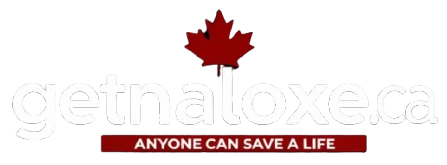If someone is experiencing an overdose call 911 immediately for assistance.

Prevent Overdose. Empower Communities. Save Lives.
Our Mission
We are a nonprofit organization dedicated to reducing overdose deaths through public education, emergency preparedness, and compassionate medical support.
Our programs empower individuals, families, and frontline responders to act confidently in moments of crisis and support long-term recovery.
What We Do
Three core services (presented with icons or visuals):
• Free Naloxone Kits
Get a naloxone kit delivered to your door at no cost.
→ Request a Kit
• Overdose Response Training
Learn how to identify and respond to an opioid overdose — fast, free, online and in-person.
→ Take the Training
• Addiction Support & Resources
Access mental health referrals, harm reduction tools, and community support programs.
→ Explore Resources
Get a free naloxone kit delivered directly to your home, with no personal information required.
Note: this information will not be stored and will only be used to send your kit and won't be stored.
For any further questions contact us
Overdose Education & Naloxone Training
Learn how to recognize and respond to opioid overdoses, use naloxone, and understand addiction from both medical and psychological perspectives.
Our videos and articles are free and open to everyone — no registration needed.
How to use naloxone nasal spray
Who is at risk and how to help them
Why should you have naloxone
It saves lives
What to do in a real life situation
Naloxone is one important step when helping someone who is overdosing.If you think that someone is overdosing on an opioid or another substance:Administer naloxone or another opioid overdose reversal medication (if available) and then call 911.
Try to keep the person awake and breathing.
Lay the person on their side to prevent choking.
Stay with the person until emergency assistance arrives.
Naloxone quickly reverses an overdose by blocking the effects of opioids. It can restore normal breathing within 2 to 3 minutes in a person whose breath has slowed, or even stopped, as a result of opioid overdose.Start by administering one dose of naloxone and wait 2-3 minutes to see if normal breathing returns before giving a second dose. Giving more than one dose of naloxone may not be necessary.*Most states have Good Samaritan Laws that may protect a person who is overdosing of the person who called for help from legal trouble.
Have a question? Need support? Interested in volunteering or partnering with us?
We’re here to help — and we’d love to hear from you.
What is naloxone?
Naloxone kits are portable pouches containing an opioid antidote that can be administered by injection or through the nose to revive an unresponsive person who is overdosing. The kits include enough medicine to reverse opioid overdoses for 10-15 minutes, allowing time to access emergency services. Naloxone is only effective for opioids (such as fentanyl, heroin and oxycodone) but not non-opioid drugs (such as cocaine, crystal meth, and MDMA). If you are not sure what the person has taken, you should give naloxone anyway if they are showing signs of an overdose. It is a safe medication that will not cause more harm, even if non-opioids have been used.
Who Can Receive It?
• Anyone at risk of witnessing or experiencing an opioid overdose
• Friends or family of someone who uses opioids
• Outreach workers, housing staff, and volunteers
• Community organizations and health teams
No ID or health card is required.
FAQ or common concerns
Is naloxone safe?
Naloxone will not harm someone if you give it to them and they are not overdosing on an opioid.
Naloxone can be given safely to people of all ages, from infants to older adults. This includes an adolescent or young adult who may have unintentionally taken an opioid.
During an overdose, a person's breathing can be dangerously slowed or stopped, causing brain damage or death. It's important to recognize the signs and act fast, even before emergency workers arrive.
If you think that someone is overdosing, please give them naloxone or any other opioid overdose reversal medication.
Can I be sued for using naloxone?
People who are taking high-dose opioid medications (greater or equal to 50 morphine milligram equivalents per day) prescribed by a doctor, people who use opioids and benzodiazepines together, and people who use drugs, should all carry naloxone. Because you cannot use naloxone on yourself, let others know you have it in case you experience an opioid overdose.
ABOUT US
1. Who We Are
We are a community-based nonprofit organization dedicated to saving lives and supporting those affected by opioid addiction.
Our mission is to reduce overdose deaths through public education, emergency preparedness, and compassionate medical support.
________________________________________
2. Why We Exist
Overdose is a public health crisis — but one that can be prevented.
We started this organization to ensure that more people have access to naloxone, overdose training, and critical support when they need it most.
3. What We Do
We offer:
• Free naloxone kit delivery
• Online overdose response training
• Educational resources and harm reduction tools
• Connections to addiction and mental health support services
________________________________________
4. Our Vision
A safer, more informed community where no one dies from an opioid overdose due to lack of support or awareness.
________________________________________
5. Our Values
• Compassion over judgment
• Prevention through education
• Access for all
• Collaboration with communities
Have a question? Need support? Interested in volunteering or partnering with us?
We’re here to help — and we’d love to hear from you.
Contact us directly at:
Email: [email protected]